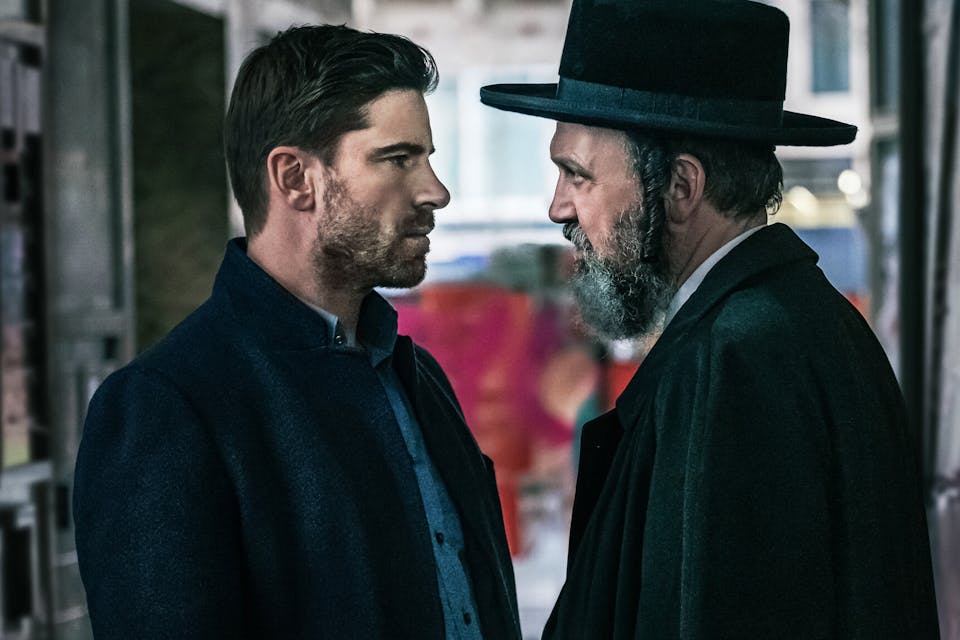
May 10, 2023
The Wheels of Jewish Language in the New Netflix Show “Rough Diamonds”
One of the show's main pleasures has to do with which of the four languages spoken by its main characters—Yiddish, Flemish, French, and English—they use with whom.
After Israeli television’s Shtisel and Netflix’s Unorthodox, we now have, already rising in the rating charts, another Netflix production, Rough Diamonds. The vogue of highly professional, well-acted and -directed films about ḥaredi Jews and their communities continues. What is it about the Ḥaredim that so fascinates everyone? The exoticism, intriguing to some, off-putting to others, of their dress and manners? The suspicion that perhaps, beneath the black hats, long jackets, yarmulkes, shtreimels, and sheitls, lies a fund of collective wisdom that it behooves us to know more about? The hope that, on the contrary, this surmise will turn out to be false, so that anti-ḥaredi prejudices can be justified? Or is it just the question of whether people whose looks, speech, and behavior make them seem so different really are so different or are at bottom very much like the rest of us?
Rough Diamonds, a newly premiered, eight-part Israeli-Belgian co-production set in Antwerp, for centuries a center of diamond trading and polishing in which Jews have always played a major role, comes down on the “very much like the rest of us” side of things. Its main protagonists, the Wolfsons, a family of diamond dealers trapped in a melodramatic but convincingly portrayed cycle of events that spins their lives out of control, are driven by the same kind of needs, ambitions, hopes, and fears that motivate most of us. Like us, they live the conflict between the demands of self-interest and the duties of loyalty and love. And like us, they are not always guided in the decisions they make by the values they profess to believe in.
Rough Diamonds is about decisions, mostly bad ones, and about how, once made, they have irrevocable consequences. Yet one of the pleasures of watching it has to do with decisions that are less consequential and in a way not even decisions, since they are made continually and unconsciously on a daily basis: the choice of which of the four languages spoken by the show’s main characters—Yiddish, Flemish, French, and English—they use with whom. This linguistic interplay, which forms no small part of the show’s intricacy, is unfortunately lost to some American viewers, who, I hear, have to watch Rough Diamonds in a version dubbed in English. (I myself saw it in an Israeli version with the original voices and Hebrew subtitles.) If you are one of these viewers, this column may help you to appreciate what you have missed.